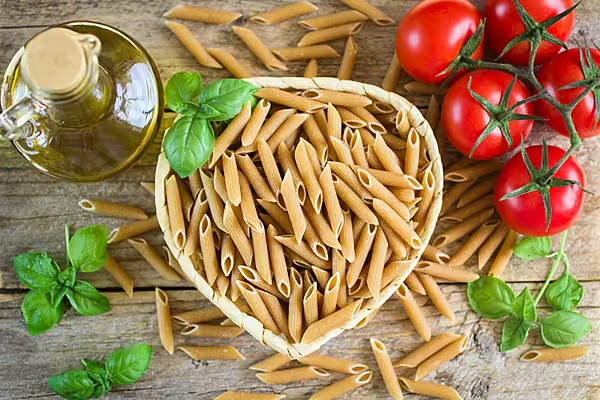The consumption of specialty pastas, such as organic, wholemeal, spelt and gluten-free varieties, has increased by 12% in the past year in Italy, a study has found.
The increased consumption of speciality pastas has been driven by the efforts of Italian pasta makers, who invest around €500 million a year, or 10% of their turnover, on average, into innovation and R&D, according to a report by AIDEPI (Association of Italian Sweet and Pasta Industries).
It found that one in every two Italian consumers is interested in learning more about new types of pasta, with 57% of consumers saying they are seeking out new taste experiences.
As well as overall growth in consumption of specialty pastas, wholemeal pasta in particular saw an 18% rise in consumption.
Overall, pasta is typically consumed by 99% of Italians, on average about five times a week, a trend that remains unchanged due to the industry’s ability to interpret trends, changing lifestyles, and push the boundaries in terms of new product development.
The pasta industry in Italy generates €4.7 billion in sales per year, with a production of 3.4 million tons of pasta (+43% compared to 50 years ago), exporting more than half, about two million tons.
Increased appreciation about product origin labelling has seen an increase in the sale of 100% Italian wheat pastas, as well as pastas made from 'ancient grains'.
© 2018 European Supermarket Magazine – your source for the latest retail news. Article by Branislav Pekic. Click subscribe to sign up to ESM: The European Supermarket Magazine








